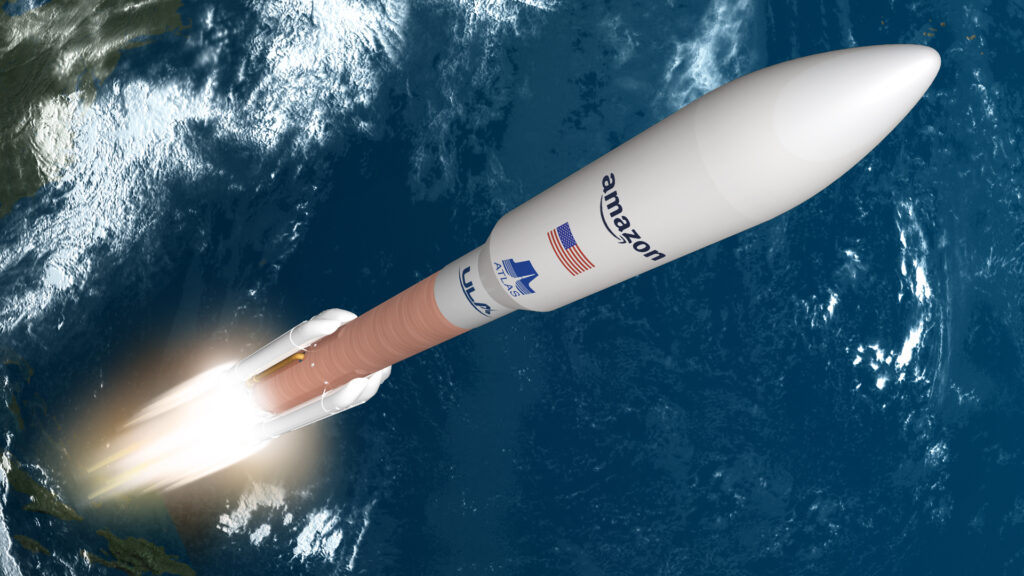As part of Amazon’s Project Kuiper, three new heavy-lift rockets will launch thousands of satellites into low-earth orbit over the next five years.
The project aims to supply broadband connectivity using a network of 3,236 satellites.
Starlink, a competitor, is believed to have more than 2,300 satellites in orbit.
Arianespace, Blue Origin, which was founded by Amazon CEO Jeff Bezos, and United Launch Alliance will build the rockets.
Project Kuiper, according to Amazon, seeks to bring high-speed, low-latency broadband to clients such as households, businesses, government agencies, disaster relief operations, mobile operators, and other organisations “operating in regions where reliable internet connectivity is unavailable.”
Users will connect to the internet via a terminal that communicates with satellites, similar to Elon Musk’s Starlink. Amazon claims that its experience delivering and manufacturing items like the Echo and Kindle will be beneficial in the development and distribution of these.
Later this year, the company plans two “prototype” missions, but they will use an ABL Space Systems rocket rather than the three that would launch the majority of the satellites.
The three new rockets utilised for Project Kuiper’s launches are still in development, unlike Elon Musk’s Falcon 9 rockets.
Following the invasion of Ukraine, another satellite internet company, OneWeb, which is partly controlled by the British government, elected to employ SpaceX Falcon 9 rockets after losing access to the Russian-built Soyuz rockets it had been using.
Mr Musk intends to deploy 30,000 Starlink satellites into space in total.
The utility of low-earth orbit satellite internet has already been proven in Ukraine, where the US Agency for International Development announced that it had assisted in the delivery of 5,000 Starlink terminals to the country’s government in collaboration with SpaceX.
However, as low-earth orbit gets more crowded, astronomers have complained that the light reflected from these satellites as they pass overhead is obstructing their view of the night sky.
Concerns have also been expressed that having so many satellites in orbit increases the possibility of collisions and the problem of space debris.











More Stories
Trump Announces Drug Pricing Deals to Cut Cost of Weight-Loss Medications
Poor Engineering Led to Titan Submersible Implosion, Say US Authorities
Nvidia Boss Predicts UK Will Become an “AI Superpower” as Tech Giants Pledge Billions